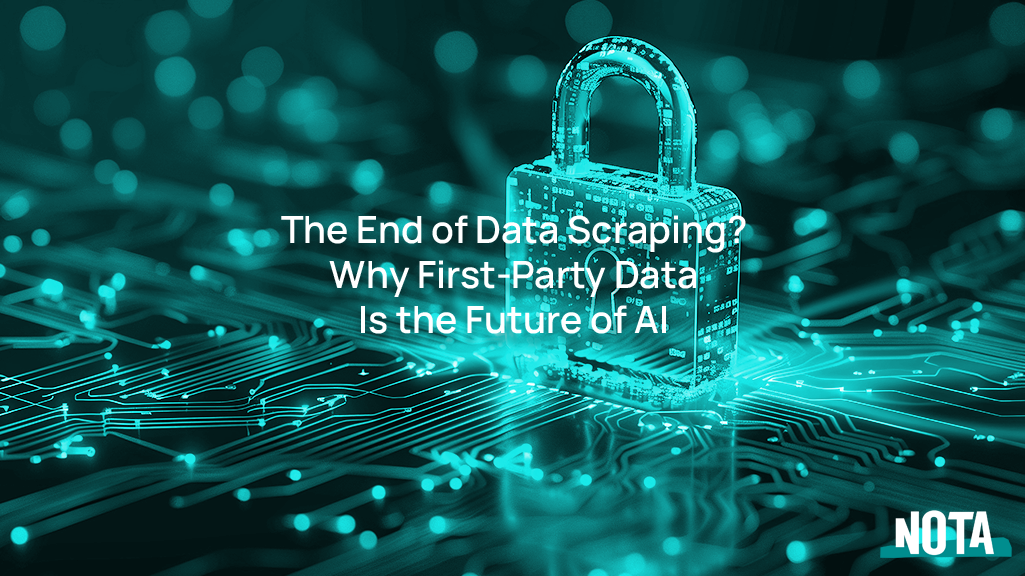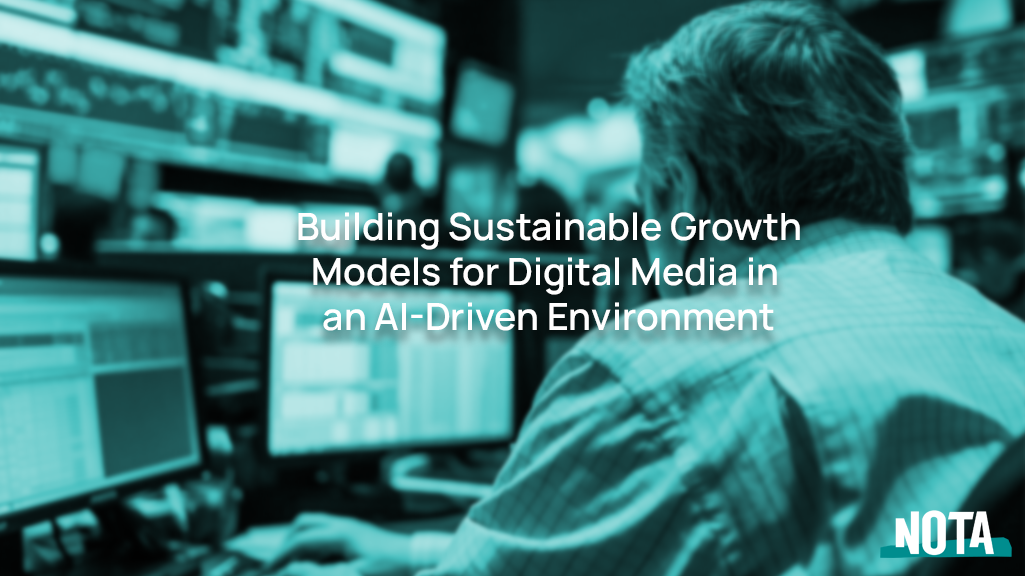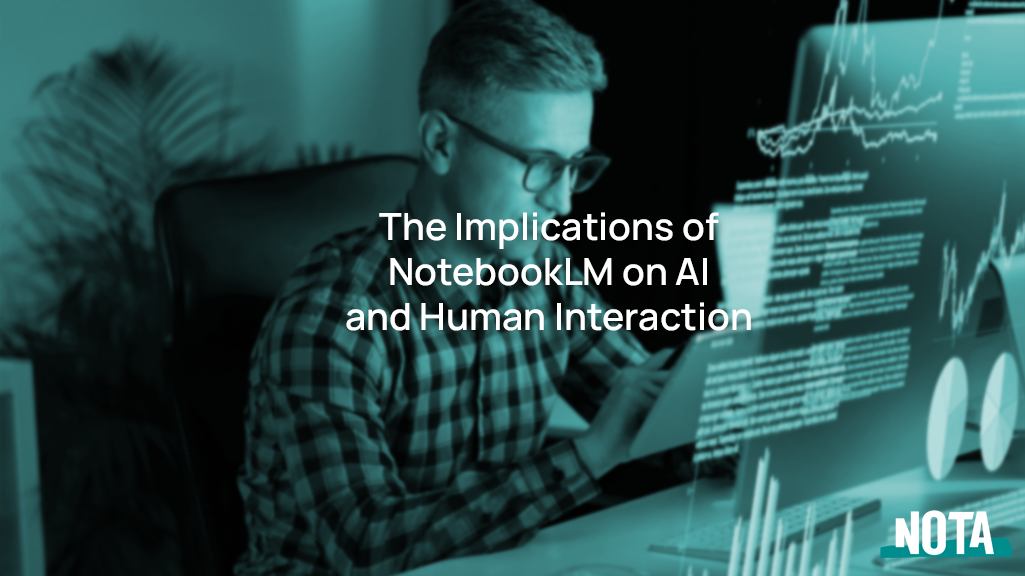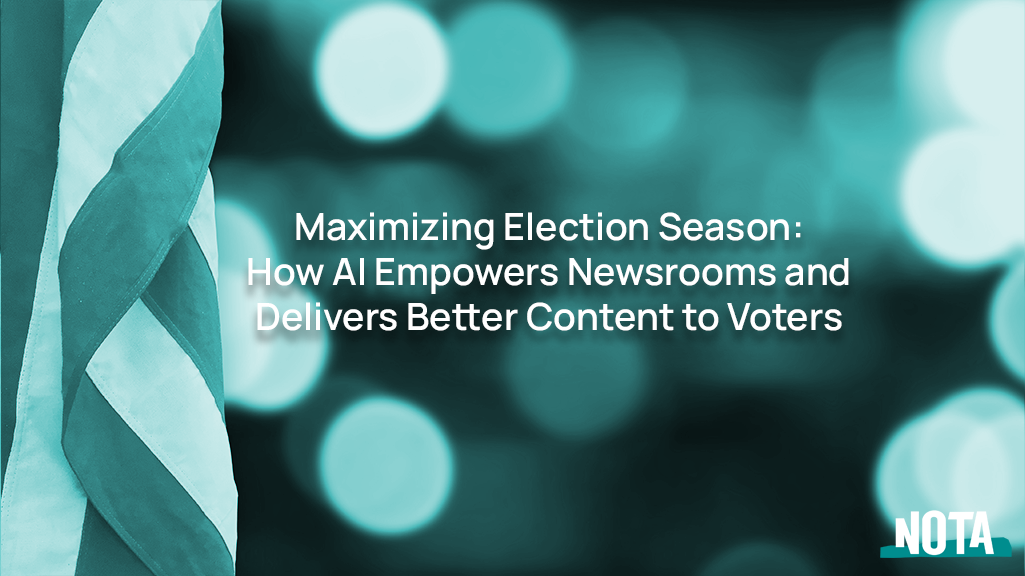The race for AI platforms to deliver stronger, faster, and more insightful outputs is reaching its peak. While natural language processing (NLP) models have traditionally relied on scraping text, video, and images to train accurate and contextually relevant responses, this practice is increasingly under ethical and regulatory scrutiny.
That said, platforms like Suno and Nvidia have recently been scrutinized for scraping web content without permission to train their AI models. As more companies experience similar challenges, it leaves all AI technology makers looking for alternative ways to train their models and bolster tools.
With the challenges of data scraping intensifying, the focus is shifting towards more sustainable and ethical solutions – chief among them, the development of robust first-party data strategies and the emerging role of data marketplaces in AI training.
State of Play
As artists, companies, and regulators push back against unauthorized scraping, the landscape is shifting towards more stringent controls and protections. Notably, cases include the class-action lawsuit filed by artists against companies like Stability AI, Midjourney and DeviantArt for allegedly using their artwork to train their respective AI models without consent. These legal battles establish precedents in how AI companies can use online content – and they all point to hindering the practice.
From a regulatory perspective, GDPR (General Data Protection Regulation) established strict rules on data collection, including the requirement for explicit consent to process personal data. This directly impacts data scraping practices, particularly when personal information is involved. A critical aspect is how GDPR ensures people have the right to ask organizations to delete their personal data – this complicates data scraping, as models could be trained on a specific person’s data one day, and in the event they want to erase that data it’s already woven into the AI platform. Similarly, CCPA provides California residents with the right to know what personal data is being collected about them and the right to opt-out of the sale of their data. More states across the US are looking to develop their own data privacy laws, too, further complicating the challenges with data scraping.
These regulations impact data scraping by restricting how companies can collect and use personal information – but there is an avenue AI companies can explore to keep meeting customer expectations and company goals.
The Most Ethical Path Forward
We’re seeing the erosion of the ability, or “correctness,” to scrape the open web. However, data marketplaces stand as a real answer. The time is now for brands to prioritize their own first-party data troves, and participate in data marketplaces where it makes sense for their business. Ethics aside, research from Epoch, an AI research organization, found AI could actually run out of all high-quality language data on the internet as early as 2026. The reality is, most of the data on the internet is considered low value or low quality, making it essentially useless for AI modeling. AI companies are searching for fresh high quality data and rethinking how they will train their respective platforms.
Implementing a first-party data program ensures companies can use data directly from their customers – and companies often have troves of historical or legacy data dispersed across their organizations.
However, building a first-party data program can be a challenge.
Building a First-Party Data Program
To develop your first party data program, you’ll need to tackle the following:
- Understand Your Data Needs – Identify the key data for your AI tools and business strategy.
- Invest in Data Collection Systems – Set up robust systems to gather and manage your customer data efficiently.
- Centralize Your Data – Ensure your collected data is easily accessible and manageable.
- Form Ethical Partnerships – Work with publishers and organizations that uphold high data integrity standards.
- Ensure Compliance – Continuously monitor and adapt to stay compliant with data regulations and best practices.
Additionally, data marketplaces help to level the playing field even further, allowing businesses to access high-quality data without resorting to scraping. These marketplaces provide diverse and high quality datasets that enable AI tools to advance. Once your first-party data programs are established, you can participate in marketplaces.
For more information on how this is done, check out our blog, “New Era Newsrooms: How First-party Data Generates New Revenue And Personalized Content.”
The Bottom Line
Building a robust first-party data program is not just a necessity due to evolving regulations and copyright issues, but a strategic advantage for long term monetization and platform development. At Nota, we’re committed to supporting businesses in this transition by offering tools that simplify data management and maximize the benefits of AI.




